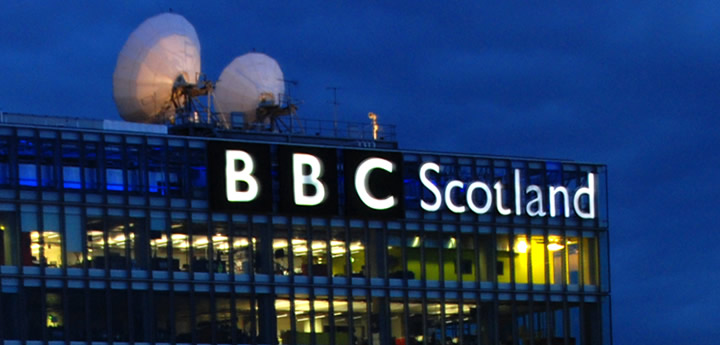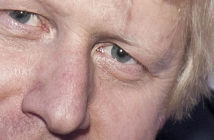As voting day looms for the Scottish referendum to determine independence, accusations of media bias by the BBC in favour of the union are coming thick and fast.
Within the space of a few days, Alex Salmond, the first minister of Scotland, accused Newsnight’s political editor Allegra Stratton of being on the side of the Better Together campaign, and Nick Robinson, the BBC’s political editor, of “heckling” him by demanding an answer to his questions at a press conference.
Salmond’s latest accusations started when it emerged that the government had apparently briefed Robinson early about the Royal Bank of Scotland’s plan to move its headquarters to England in the event of a Yes vote.
In an interview in the Sunday Herald, Salmond said of the BBC: “I like these folk, but they don’t realise they’re biased. It is the unconscious bias which is the most extraordinary thing of all.” He added: “I’m not really laying this charge at BBC Scotland. I just think the metropolitan BBC has found this whole thing extraordinarily difficult, to separate from their own view of the world from their view of reporting Scotland.”
The upshot was that on September 14, campaigners for independence launched a demonstration outside BBC headquarters in Glasgow to protest the alleged bias in its coverage.
This is hardly the first time independence campaign supporters have accused the BBC of bias – after UKIP’s David Coburn won his party’s first ever Scottish seat in the European Parliament, Salmond complained that the BBC had “beamed UKIP into Scottish homes” with its coverage.
Just the messenger?
These incidents are not necessarily indicative of a deep, systemic institutional bias; after all, if handed Robinson’s RBS scoop, no sensible journalist would choose to suppress it. But the story easily chimes with the notion that the BBC is part of a politicised and manipulative establishment, machinating with the banks and the treasury to influence the vote in the union’s favour.
Doubtless some machination was afoot – the Treasury is a major shareholder in RBS and is not neutral in the independence debate – but the BBC’s Robinson was merely the messenger.
Nevertheless, a recent systematic content analysis of the BBC’s flagship radio news and current affairs programme Good Morning Scotland, conducted by Professor John Robertson of the University of West Scotland, claimed to detect a pro-union bias in the programme’s coverage.
Robertson, who favours independence, conducted his study of the programme’s coverage throughout April 2014, and concluded that while it was “balanced in crude numerical terms,” in every other respect, it was unfair to the Yes campaign and favoured the No side.
From all sides
Accusations of political bias at the BBC have a long history. The BBC’s own written archives reveal that from its very earliest days, politicians have been complaining of political bias.
Throughout its history, Conservatives and the conservative press have regularly complained of left-wing bias; although complaints from the left of unbalanced coverage have been less prominent, surveys conducted by the Independent Television Commission (now subsumed by OFCOM) from 1975-1995 consistently found that the BBC was seen as biased to the right by significantly more than saw it as biased to the left.
Surveys over the years have also shown that voters’ own political affiliations predict their tendency to see the BBC as biased, and specifically, as biased against their view.
Pressure on the BBC has always been particularly high at times of national political crisis. Attacks on its impartiality from conservatives were made during the Suez crisis in 1956, in 1982 during the Falklands war, and in 1986, when the US was granted use of British air bases to mount bombing raids on Libya. Other challenges were made to the corporation (and to other broadcasters) over news and current affairs programmes about Northern Ireland, the Iraq War and the Balkans War.
More recently, research conducted by Cardiff University and funded by the BBC Trust examined the impartiality of BBC reporting in areas such as regional news, the Israel-Palestine conflict, the Arab Spring, business and science.
This research examined the range of topics and sources featured in BBC broadcast news from both 2007 and 2012 compared to other broadcasters, and also looked at the BBC’s online and broadcast reporting of immigration, the EU and religion. Contrary to expectations of bias made by BBC accusers, the study found that the BBC tends to reproduce “a Conservative, Eurosceptic, pro-business version of the world, not a left-wing, anti-business agenda”.
No view from nowhere
Disparities in perceptions of BBC bias fit with psychological research showing that viewers usually register news stories in an incomplete and highly selective fashion, strongly influenced by their prevailing attitudes: different people may view the same broadcasts in very different ways.
Such findings suggest viewer and listener perceptions of bias can be rather self-fulfilling and self-perpetuating. Plainly, subjective perceptions of bias do not prove that the programmes are biased, but nonetheless, even perceived bias is a serious problem for any news organisation (particularly the BBC) that claims to be authoritative and impartial.
And yet, a little-reported finding from Professor Robertson’s study of the BBC’s supposed pro-Union bias was that the number of statements favourable to the Yes campaign (736) significantly outnumbered those favourable to the No campaign (622). There may, of course, be a bias in the reporting of bias.
By Howard Tumber, City University London and Peter Ayton, City University London
The authors do not work for, consult to, own shares in or receive funding from any company or organisation that would benefit from this article. They also have no relevant affiliations.
![]()




